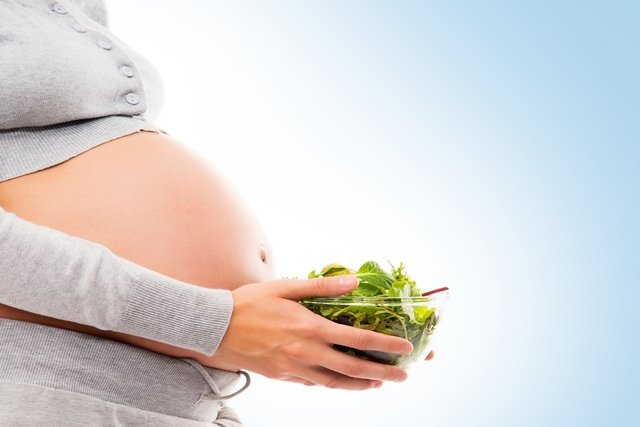Anemia in pregnancy is when hemoglobin levels are below 11 g/dL and usually occurs due to hormonal changes during pregnancy, but can also occur due to iron or folic acid deficiency and diseases such as thalassemia or pre-eclampsia.
During pregnancy, anemia can cause symptoms such as tiredness, weakness, paleness and a racing heart. Furthermore, depending on the cause, other symptoms may also appear, such as yellowed skin and eyes or lumps on the body.
If you suspect anemia during pregnancy, it is important to consult an obstetrician for an assessment and start the most appropriate treatment, which may involve a diet rich in nutrients, such as iron and folic acid, and the use of an iron supplement, in some cases.

Symptoms of anemia in pregnancy
The main signs of anemia during pregnancy are:
- Tiredness;
- Dizziness;
- Headache;
- Weakness;
- Lack of appetite;
- Pallor;
- Accelerated heart.
Furthermore, depending on the cause of anemia, other symptoms may appear, such as pain in the abdomen, swelling throughout the body, yellowing of the skin and eyes, for example. Check out other symptoms of anemia.
Symptom Test
If you think you may have anemia, indicate the symptoms you have on the test below:
The symptom test is only a guidance tool and does not serve as a diagnosis or replace a consultation with an obstetrician.
Is anemia during pregnancy dangerous?
Having anemia during pregnancy can be dangerous for both the woman and the baby, due to the risk of bleeding during childbirth, miscarriage, premature birth and low birth weight.
Possible causes
Anemia in pregnancy can be caused by:
- Common hormonal changes during pregnancywhich lead to water retention in the body by the kidneys and an increase in blood volume;
- Nutrient Deficiencysuch as iron, folic acid or vitamin B12;
- Illnessessuch as sickle cell anemia, thalassemia, or preeclampsia;
- Blood lossdue to heavy menstrual bleeding before pregnancy or hemorrhage, for example.
Furthermore, anemia during pregnancy can be of different types depending on its cause. Therefore, blood tests are normally indicated, such as the measurement of reticulocytes, ferritin or vitamin B12, for identification. Learn about the main types of anemia.
How to confirm the diagnosis
The diagnosis of anemia during pregnancy is normally confirmed by the obstetrician through blood tests carried out during prenatal care when the hemoglobin value is below 11 g/dL. Better understand the results of the blood test.
How the treatment is carried out
Treatment for anemia during pregnancy depends on the cause, and the doctor may recommend improving eating habits and the use of supplements, for example.
What to eat
To treat anemia during pregnancy, the intake of foods rich in iron and folic acid may be recommended, such as meat, liver steak, beans, spinach, lentils and kale, as this makes it possible to restore iron levels in the body, which influences directly on the amount of circulating hemoglobin.
Furthermore, to increase the availability of iron present in food, it is recommended to drink juice or eat a citrus fruit with a meal, such as orange, lemon, pineapple or tangerine. See more foods rich in iron.
Use of supplements
The obstetrician may also recommend daily iron supplementation, which can be done through the use of liquid or tableted ferrous sulfate, for example.
These supplements can cause side effects such as diarrhea, constipation, nausea and heartburn, and should be taken according to your doctor’s instructions. Check out other side effects of ferrous sulfate.
Bibliography
- STEPHEN, Grace et al. Anaemia in Pregnancy: Prevalence, Risk Factors, and Adverse Perinatal Outcomes in Northern Tanzania. Anemia. Vol.2018, n.1846280. 2018
- STATPEARLS. Physiology, Maternal Blood. 2022. Available at: <https://www.ncbi.nlm.nih.gov/books/NBK557783/>. Accessed on 26 Dec 2022
- STATPEARLS. Anemia. 2022. Available at: <https://www.ncbi.nlm.nih.gov/books/NBK499994/>. Accessed on 26 Dec 2022
- AGARWAL, Archana M; RETS, Aton. Laboratory approach to investigation of anemia in pregnancy. Int J Lab Hematol. Vol.43, n.1. 65-70, 2021
- SOMA-PILLAY, Priya; NELSON-PIERCY, Catherine; TOLPPANEN, Heli; MEBAZAA, Alexandre. Physiological changes in pregnancy. Cardiovasc J Afr. Vol 27. 2 ed; 89-94, 2016

Sign up for our newsletter and stay up to date with exclusive news
that can transform your routine!
Warning: Undefined array key "title" in /home/storelat/public_html/wp-content/plugins/link-whisper-premium/templates/frontend/related-posts.php on line 12
Warning: Undefined array key "title_tag" in /home/storelat/public_html/wp-content/plugins/link-whisper-premium/templates/frontend/related-posts.php on line 13



